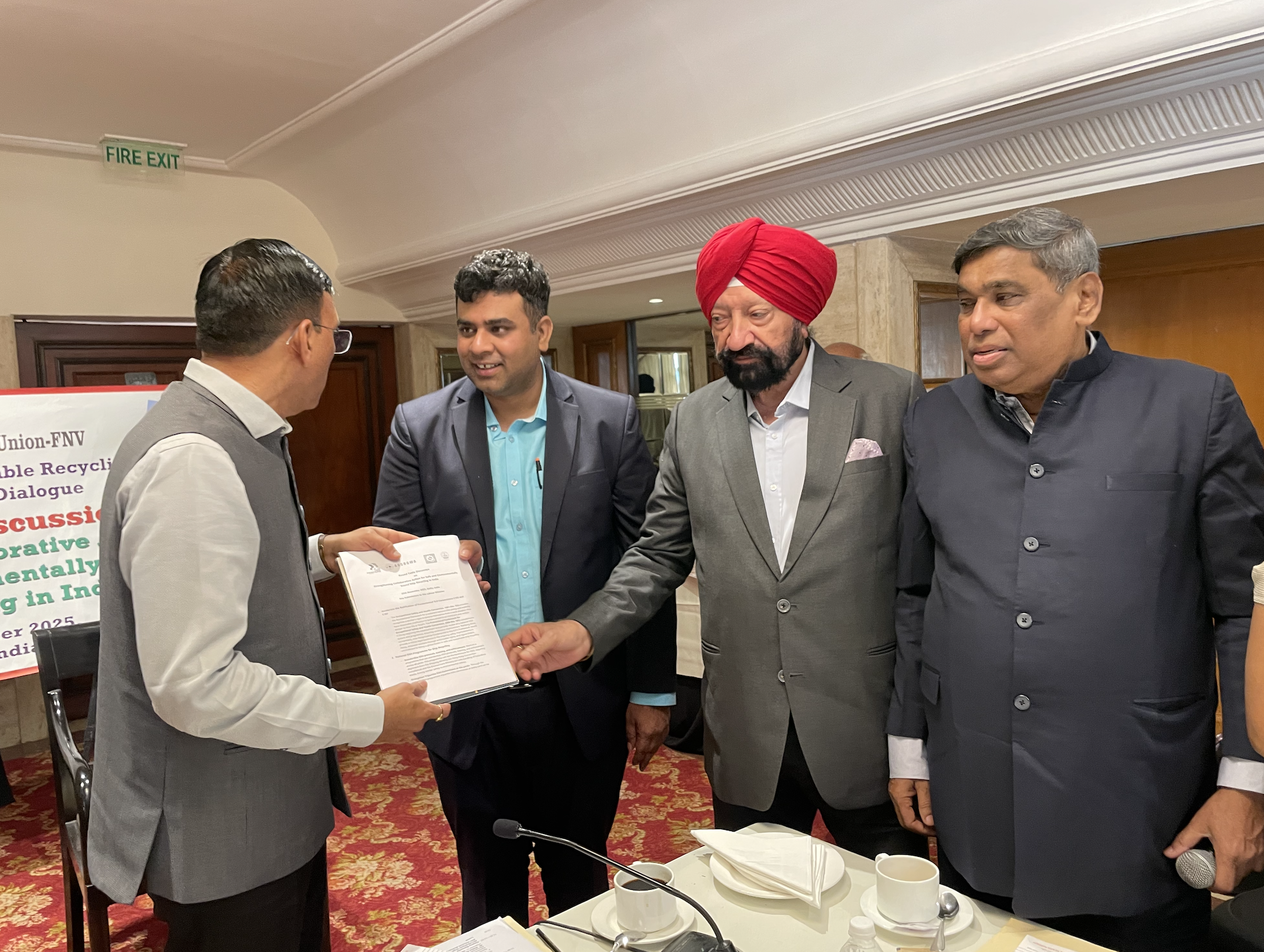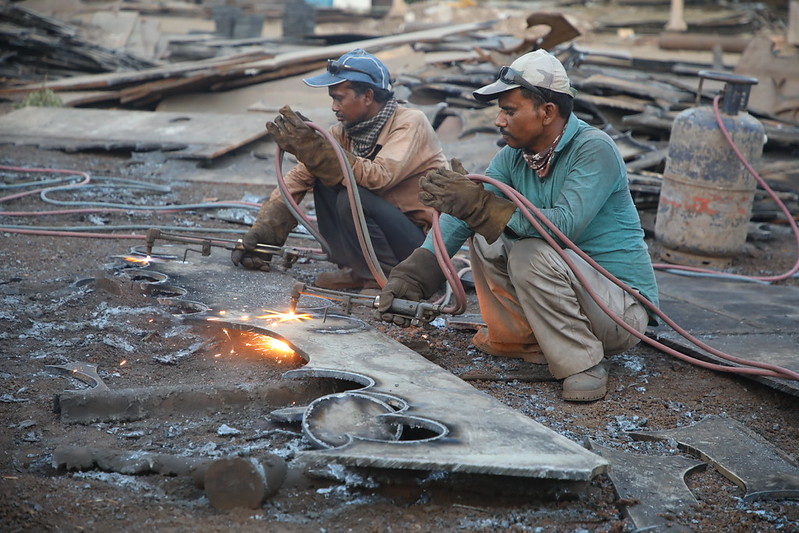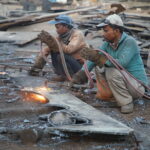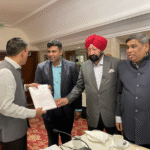25 November, 2025At a round table meeting held in Delhi on 25 November, the Indian minister of Labour and Employment, Dr Mansukh Mandaviya, committed to improving conditions in the ship recycling industry.
The round table was attended by representatives of the ILO, IndustriALL, the directorate general of shipping, SMEFI, the ship recycling union ASSRGWA, and their confederation, Hind Mazdoor Sabha (HMS). Opening the meeting, IndustriALL regional secretary Ashutosh Bhattacharya spoke about the progress made in improving ship recycling, which was achieved through cooperation and social dialogue between unions, employers, federal and local government.
ILO deputy director Satoshi Sasaki described the entry into force of the Hong Kong Convention (HKC) as a transformative moment for the decent work agenda. He noted that the HKC does not exist in isolation, and that to successfully transform the industry, it needs to be considered in conjunction with an eco-system of international instruments, including the Basel Convention, ILO Core Conventions, ILO guidelines on shipbreaking and the newly created guidelines on recycling.
Harbhajan Singh, the general secretary of HMS, spoke forcefully about the ongoing problems still faced by ship recycling workers. Although safety has improved, very few yards are providing health checks, and occupation illness remains a major problem. Another serious issue is the precarious nature of the work, which also affects workers’ housing. Since accommodation is provided by the employer, many workers find themselves homeless when there is no work.
Union representatives spoke about the need of the different departments of the Indian government, including the labour and environment ministries, and the directorate general of shipping, to coordinate better, and to create a structure that includes unions in decision making about the industry.

Although there is good level of consensus-based social dialogue between the union, the employers’ federation SRIA, and the local authority the GMB, there is a need to formalize this through an industry-wide agreement covering wages, time off and other terms and conditions.
It is also important to extend protections to the estimated 500,000 informal workers in the downstream industry.
The union side submitted policy suggestions for improving the industry:
- Ratification of ILO Conventions 155 and 187. This would give workers the right to refuse unsafe work, and create a framework for joint health and safety committees.
- Develop a national Occupational Safety and Health (OSH) programme for ship recycling. A standardized OSH programme, benchmarked against the HKC and environmental standards, would strengthen yard-level joint health and safety committees.
- Create a digital OSH and worker welfare platform. This would capture data about accidents and near misses, and maintain a record of workers’ health, providing the data needed to manage workers’ welfare.
- Social protection for informal workers. Workers in the downstream industry are not protected by the HKC and have no employment protections. There should be a pathway to formalization, with the development of a social security scheme being an important first step.
Minister Mandaviya, who was born in Bhavnagar near the ship recycling port of Alang and is currently a member of parliament for the region, responded that he had a deep commitment to improving conditions for the workers.
He committed to visiting Alang and holding meetings with all stakeholders to address the issues faced by workers.
Says IndustriALL director for shipbreaking and shipbuilding Walton Pantland:
“India has the potential to be a beacon for the safe and environmentally sound recycling of ships. But there is still work to be done: the Hong Kong Convention must be fully implemented, and workers must be involved in decision making at all levels. An industry wide collective agreement would be transformative in creating decent work.”
Cover photo: Downstream steel industry, Alang, 2022.


